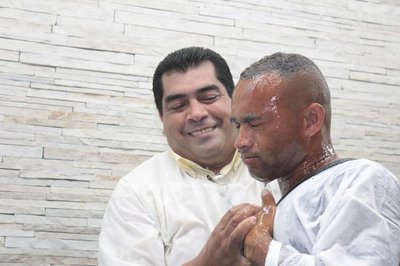Thoughts for the Day
Wednesday, 22nd January 2025: Week of Prayer for Christian Unity: 5
Ephesians 1 Baptism Salvation Chosen people Baptist Unity
Reading : Verses from Acts, Chapter 1

Blessed be the God and Father of our Lord Jesus Christ, who has blessed us in Christ with every spiritual blessing in the heavenly places, just as he chose us in Christ before the foundation of the world to be holy and blameless before him in love. He destined us for adoption as his children through Jesus Christ, according to the good pleasure of his will, to the praise of his glorious grace that he freely bestowed on us in the Beloved. In him we have redemption through his blood, the forgiveness of our trespasses, according to the riches of his grace that he lavished on us. With all wisdom and insight he has made known to us the mystery of his will, according to his good pleasure that he set forth in Christ, as a plan for the fullness of time, to gather up all things in him, things in heaven and things on earth. In Christ we have also obtained an inheritance, having been destined according to the purpose of him who accomplishes all things according to his counsel and will, so that we, who were the first to set our hope on Christ, might live for the praise of his glory.
(New Revised Standard Version)
Thoughts
Today I want to look at a group of Protestant Christians who share the basic beliefs of most Protestants but who insist that only believers should be baptised and and by immersion rather than by pouring a little water on someone's head. I have a great deal of time for Baptists, not least because my parents were Baptists, and because some of the Baptist members of the Ecumenical Church I belonged to years ago would attend the services I conducted, of multiple baptisms of babies, not as supporters of the rite of infant baptism, but, to support the right of an Anglican Deaconess to baptise babies within an ecumenical church.
Baptists do not constitute a single church or denominational structure, indeed most adhere to a congregational form of church government. It is difficult to be exact but their origins lie largely in being a protest group in the UK against the Church of England. The Baptist church as we know it was not founded until the 17th Century, and there were two separate groups in England: The General Baptists and the Particular Baptists. The former believed that Christ died for all people, the latter that Christ died only for a chosen group (the 'elect'). Baptists were to suffer persecution and many fled to Holland and to the British colonies. A survey in 1793 estimated that there were 1,032 Baptist churches in America. About half were were Calvinist or Particular Baptist congregations.
Perhaps the two most well-known English Baptists are John Bunyan (1628-1688) and Charles Spurgeon (1834-1892). Bunyan is famous as the author of Pilgrim’s Progress. He was imprisoned several times in the late 17th century for illegal preaching. While Charles Spurgeon was the most famous preacher in the 19th century.
Prayer
Prayer for Christian unity
Eternal Creator,
we are grateful for the diversity within Your church
and the different ways we express our faith.
As we seek to achieve unity in our diverse ways,
we pray for the bond of peace to prevail in our community.
Help us to embrace the unity of the Spirit
and to find common ground despite our differences.
We lift up our prayers for the local church
and the broader Christian community,
asking that Your love and guidance
lead us towards greater unity.
Let the power of the Holy Spirit overcome any barriers
and enable us to work together in harmony.
We remember the teachings of Christ Jesus
as we strive for unity.
May our efforts reflect Your love and grace
and bear fruit in our community and beyond.
We ask this in Jesus’ name.
Amen.
(from 'Godsverse')
You might like to look at this history of the Baptist Church:
For the really keen: